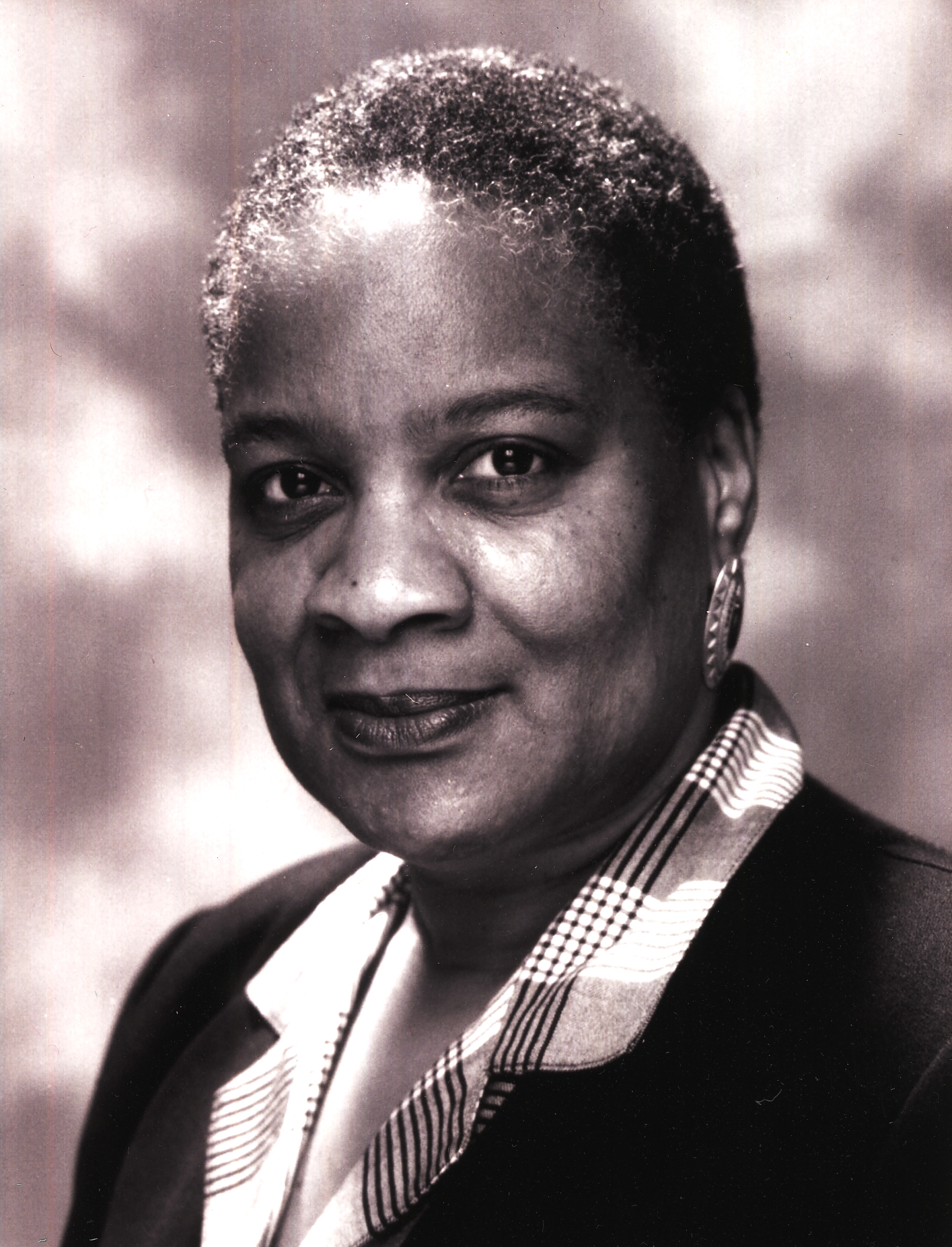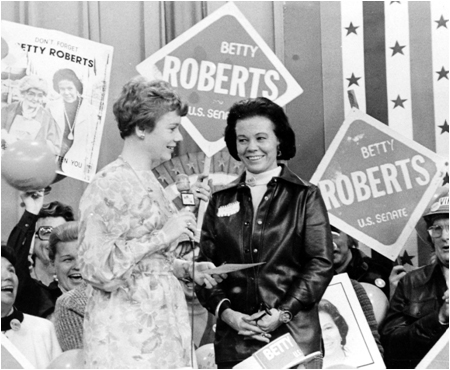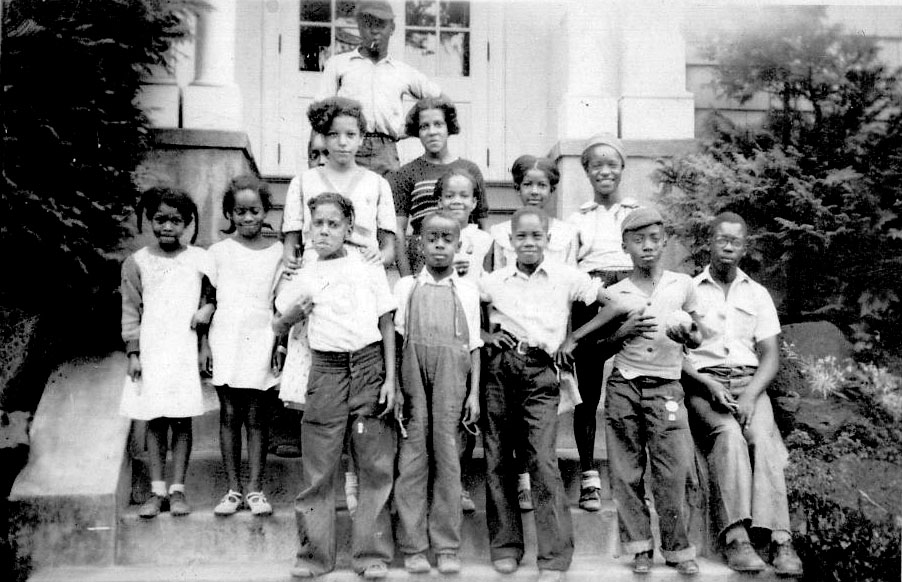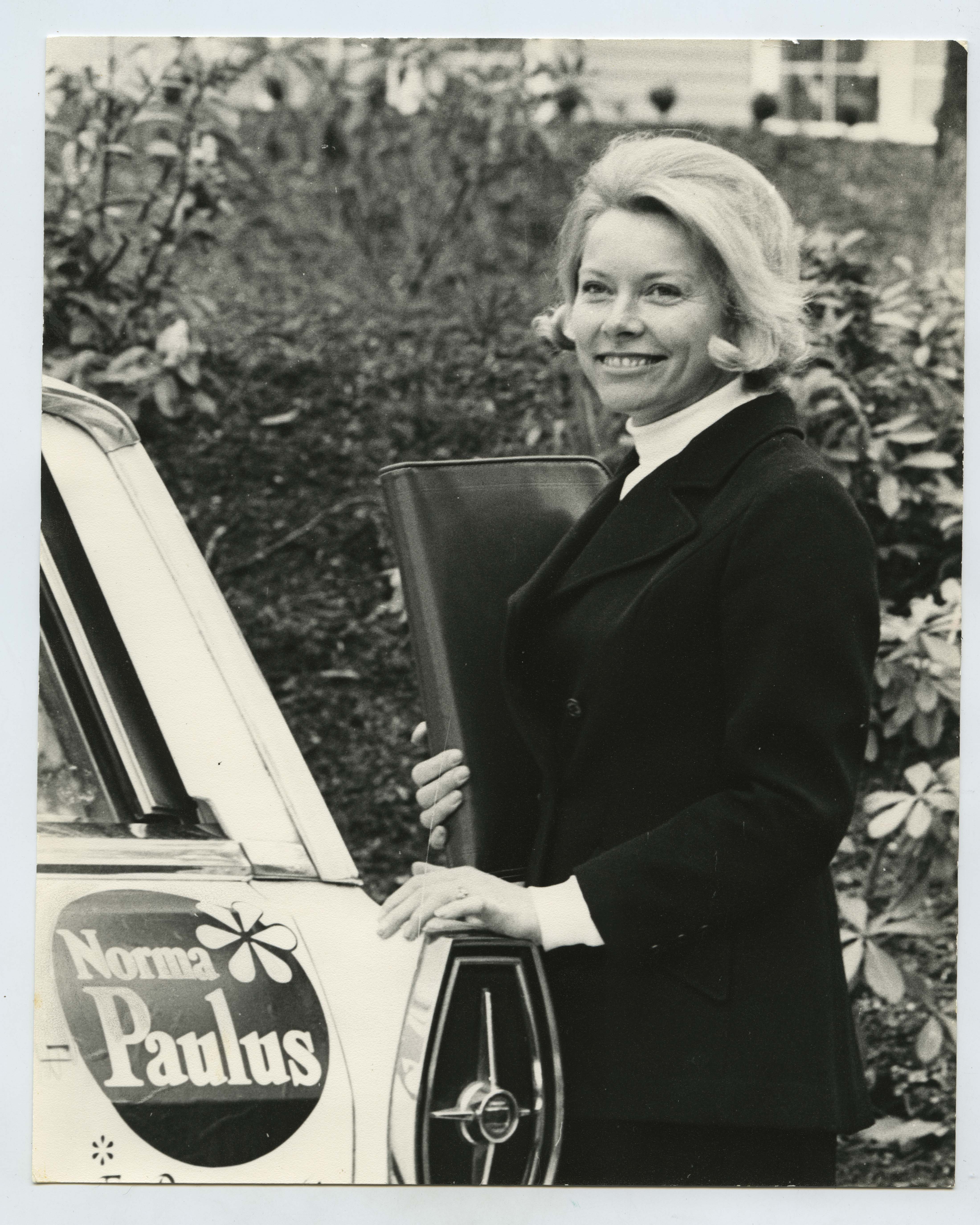Margaret Carter was the first Black woman to be elected to the Oregon State Legislature, in 1984. She served as the chair of the Democratic Party of Oregon (1996) and was the first African American woman to hold such an office west of the Mississippi. In 2005, Carter became the first African American to serve as president pro tem in the Oregon State Senate.
Margaret Louise Carter was born in Shreveport, Louisiana, on December 29, 1935, in the midst of the Great Depression, the eighth child of nine. Her stepfather, Hilton Hunter, known as Daddy Rev, was a minister and a home builder; her mother, Emma, was a cook in the public schools. Despite Carter’s impoverished, segregated childhood, she remembered being “civically engaged, academically engaged, spiritually engaged, which today I see as a very balanced life.”
From age five, Carter showcased her powerful singing voice and her talent for playing the piano. By the time she was fifteen, she was singing and playing for her stepfather’s church, and within two years she was singing on the radio with the Mt. Calvary Gospel Singers, a semi-professional gospel group with an audience in Louisiana, Texas, and Arkansas. Carter graduated from high school in 1954 as salutatorian of her class and attended Spaulding Business College for a year, until her first child was born. She then worked evenings in the Louisiana Ammunition Plant in Minden, Louisiana, close to Shreveport, while her husband, Charles Williams, served in the military. In 1967, just shy of her thirty-second birthday, while working full-time and raising five children, Carter fled that abusive thirteen-year marriage and moved herself and her five daughters to Portland. Her choice of Portland was based on a dream of a place filled with flowers and greenery, followed by a telephone call from a long-lost friend who told her about the lush Willamette Valley.
She secured a divorce in 1968 and went on welfare to support herself and her family. She took classes at Portland State University and graduated in 1972 with a degree in education. Two years later, she received a Master of Education degree in educational psychology from Oregon State University. A second marriage, to Elvis Carter in 1972, brought four stepchildren. When the couple divorced about ten years later, the stepchildren stayed with Margaret Carter.
With degrees in hand, Carter worked for twenty-seven years as a counselor and faculty member at Portland Community College (PCC). In 1983, a group of business and community leaders recruited her to run for the legislature to represent House District 18 in northeast Portland. The race piqued her interest because of her background in civic engagement, but she remembers thinking, “Oh, that will never happen. No Black woman ever ran and won the legislature.” Carter won the 1984 Democratic primary and then handily beat her general election opponent, Republican Chad Debnam.
When the state's term-limit law forced her out after seven terms, Carter ran unsuccessfully for statewide office in 1998, seeking the nonpartisan office of Oregon Superintendent of Public Instruction; she lost to Republican Stan Bunn. In 2000, she was elected to the Oregon State Senate from District 22 in northeast Portland. She also served as president and CEO of the Urban League of Portland from 1999 to 2002 and was president of the National Organization of Black Elected Legislative Women.
Carter says that her constituents expected her to address three initial issues: legislation for a Martin Luther King Jr. holiday, minority contracting, and South African anti-apartheid divestment legislation. She was successful in all three efforts. She also sponsored a law creating enterprise zones designed to attract business to economically depressed areas and legislation aimed at retraining workers and upgrading the skills of the Oregon workforce.
Throughout her legislative years, Carter was well liked and respected by legislators of both parties. “If there's an issue she's convinced about,” said Senate Minority Leader Ted Ferrioli (R-John Day), “she'll get in your face. But a few minutes later, she's laughing with you." In 2009, after eight years in the Senate, Carter resigned to take the position of Deputy Director for Human Services Programs at the Oregon Department of Human Services, a job she held until her retirement in 2014. Since then, she has been a volunteer at the Albina DHS office and the PCC skills center, which was named for her.
Carter has garnered a bouquet of honors, including Oregon Women of Achievement (1997), OSU Alumni Fellows Award (2010), Oregon Historical Society’s Board of Directors (2012), and the Jesse Richardson Foundation Ageless Award (2017). In 2020, she was honored by USA Today and the Statesman Journal as one of ten Oregon “Women of the Century.”
Of all her achievements, Carter says that she is most proud of raising her nine children. Daughter Emmaly Williams, who remembers the times when her mother would stop the car to help someone in trouble, says, “My mother is mommy to everybody.” In 2020, at the age of eighty-five, Carter announced, “I still have work to do.”
-
![]()
Margaret Carter.
Courtesy Portland Community College -
![]()
Margaret Carter on the cover of the OSU Oregon Stater, 2003.
Courtesy Oregon State University Libraries -
![Margaret Carter stands in the third row, second from the left.]()
Oregon State Senate, 2009.
Margaret Carter stands in the third row, second from the left. Courtesy Oregon State Legislature -
![Margaret Carter stands in the second row, first from the left.]()
OHS Board of Trustees, 2021.
Margaret Carter stands in the second row, first from the left. Courtesy Oregon Historical Society
Related Entries
-
![Avel Gordly (1947-)]()
Avel Gordly (1947-)
In 1996, Avel Louise Gordly became the first African American woman to …
-
![Betty Roberts (1923-2011)]()
Betty Roberts (1923-2011)
Betty Roberts was a thirty-two-year-old housewife with four children wh…
-
![Black People in Oregon]()
Black People in Oregon
Periodically, newspaper or magazine articles appear proclaiming amazeme…
-
![Elizabeth Furse (1936–2021)]()
Elizabeth Furse (1936–2021)
First elected to the U.S. House of Representatives in 1992, Elizabeth F…
-
![Gladys McCoy (1928–1993)]()
Gladys McCoy (1928–1993)
Gladys Sims McCoy was one of the first person of color elected to publi…
-
![Norma Petersen Paulus (1933-2019)]()
Norma Petersen Paulus (1933-2019)
Norma Paulus was a forward-thinking, practical-minded Republican leader…
Map This on the Oregon History WayFinder
The Oregon History Wayfinder is an interactive map that identifies significant places, people, and events in Oregon history.
Further Reading
Piccard, Katherine. "Margaret Carter." BlackPast, August 14, 2012.
Carter, Steven. "Margaret Carter." Sunday Oregonian, October 11, 1998.
"Margaret Carter: Honoring a lifetime of service to Oregon." OSU Synergies, January 28, 2011.
Cole, Michelle. “Senate 'matriarch' undaunted by dissent.” Portland Oregonian, June 26, 2006.










